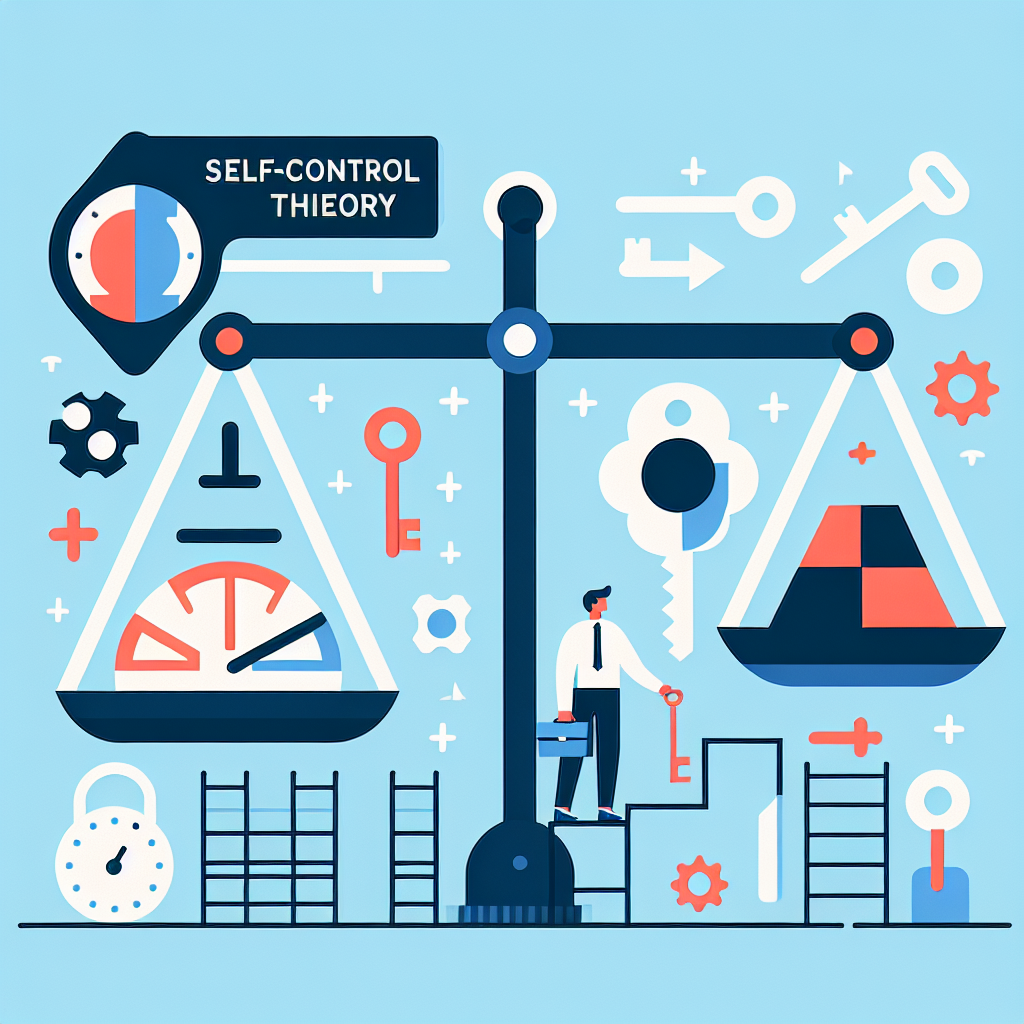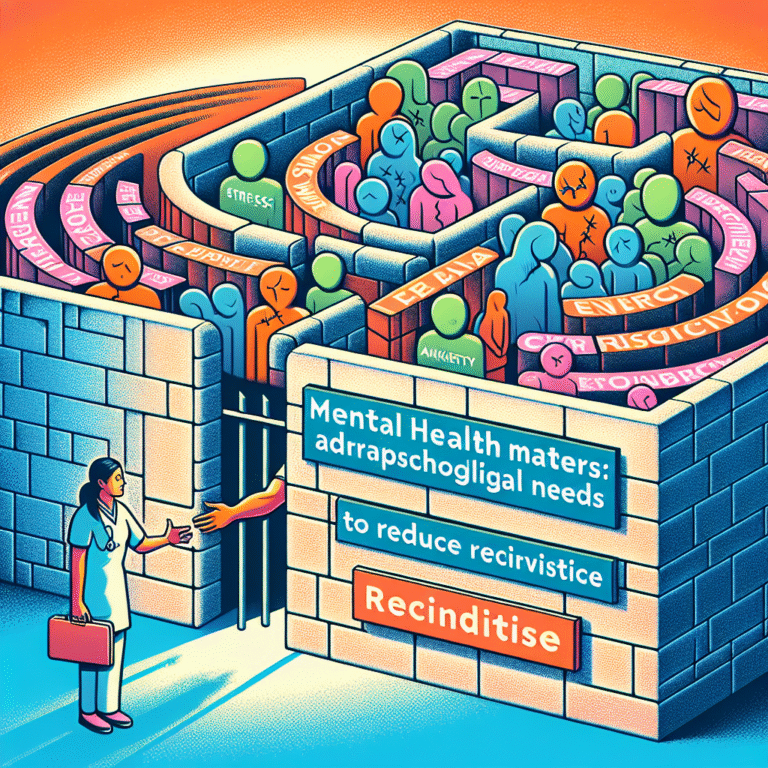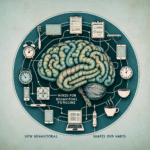
Introduction
Imagine standing at a crossroads—a choice lies before you, and it could define your future. Do you indulge in short-term gratification, or do you resist temptation for long-term success? This critical moment illustrates the power of self-control, a concept rooted in psychology that significantly impacts both personal and professional domains. Self-Control Theory: The Key to Personal and Professional Success emphasizes that our ability to regulate our thoughts, emotions, and behaviors directly shapes our paths.
As we delve into this transformative theory, you’ll discover how mastering self-control not only enhances individual capabilities but also cultivates the environment for success in leadership, teamwork, and personal growth. Buckle up for an enlightening journey that could redefine your approach to everyday challenges!
Understanding Self-Control Theory
What Is Self-Control?
Self-control is the ability to resist immediate temptations and stick to long-term goals. It’s the mental process that dictates how we manage impulses, and it plays a vital role in decision-making. Psychologists have observed that self-control is not just about willpower; it’s more about understanding one’s desires and the broader implications of our choices.
The Mechanics of Self-Control
Self-Control Theory postulates that individual success stems from a conscious effort to regulate one’s own actions. Here’s a breakdown of its key components:
- Impulse Management: The practice of delaying gratification to achieve desired outcomes.
- Goal Setting: Clearly defined goals help individuals prioritize long-term benefits over short-term pleasures.
- Emotional Regulation: The ability to manage emotions effectively, especially in challenging situations.
Key Research Findings
Numerous studies have explored the profound implications of self-control. One landmark study by Walter Mischel, famously known as the Stanford Marshmallow Experiment, found that children who were able to delay gratification for a small reward (like a marshmallow) could achieve better life outcomes in terms of education, health, and finances.
| Study | Findings |
|---|---|
| Stanford Marshmallow | Children who delay gratification perform better academically and socially. |
| Baumeister et al. (1998) | Self-control is a finite resource; exerting it can lead to ego depletion. |
The Impact of Self-Control in Personal Life
Relationships
Self-Control Theory profoundly impacts personal relationships. Individuals with strong self-regulation skills tend to have healthier relationships. They can manage conflicts better, communicate more effectively, and invest time in nurturing connections.
Case Study: The Johnson Couple
The Johnsons, a married couple in their late 30s, faced challenges in their relationship due to impulsive behaviors—such as arguing over trivial matters and spending beyond their means. After attending workshops focused on self-control strategies, they learned to articulate their needs without escalating conflicts. Consequently, their relationship flourished, demonstrating that self-control can enhance romantic partnerships.
Health and Well-being
Maintaining physical health requires consistent effort and self-discipline. Whether it’s adhering to a workout regimen or resisting junk food, self-control is foundational to well-being.
Case Study: Mike’s Transformation
Mike, a 28-year-old office worker, struggled with obesity due to poor dietary choices and a sedentary lifestyle. After researching Self-Control Theory, he set clear health goals. By implementing meal prepping and scheduling workouts, Mike significantly improved his physical health and self-image. His story illustrates how self-control can lead to transformative life decisions.
The Role of Self-Control in Professional Success
Leadership
Effective leaders must exhibit high levels of self-control. They make decisions that align with the organization’s long-term vision rather than yielding to immediate pressures.
Case Study: Sarah’s Leadership Journey
Sarah, a project manager, often faced stressful deadlines. Recognizing the detrimental impact of her impulsive decisions, she honed her self-control abilities by practicing mindfulness techniques. As a result, Sarah became a more thoughtful leader, fostering a collaborative team environment and achieving exceptional project results.
Teamwork
Within teams, self-control facilitates better cooperation and reduces negative conflicts. Members who can regulate their emotions contribute positively to the group dynamics, reinforcing a culture of support and productivity.
| Professional Area | Self-Control Application | Outcome |
|---|---|---|
| Leadership | Mindfulness, clear communication | Improved decision-making |
| Teamwork | Conflict resolution, emotional regulation | Enhanced cooperation |
Cultivating Self-Control: Practical Strategies
Goal Setting and Planning
Start by defining clear, attainable goals. Whether for personal or professional objectives, having a roadmap creates accountability and guides decision-making.
Mindfulness and Meditation
Practicing mindfulness allows individuals to redirect their focus and control impulses. Regular meditation can enhance self-awareness and reduce stress, leading to better decision-making.
Impulse Logging
Keeping a log of moments when you give in to temptation can illuminate patterns and triggers, allowing for proactive management strategies.
Environmental Design
Shape your surroundings to eliminate temptations. If you struggle with overeating, for instance, stock your kitchen with healthy options. This simple change can significantly impact your self-control.
Conclusion
Self-Control Theory: The Key to Personal and Professional Success reveals how critical self-regulation is to achieving aspirations across various aspects of life. By mastering self-control, you create a robust foundation for success, enriching your relationships, enhancing your health, and scaling professional heights.
In a world increasingly filled with distractions and temptations, reinforcing self-control through informed strategies and practices can lead to astonishing outcomes. Remember, every moment of self-control is a step toward long-term happiness and fulfillment. Embrace it!
FAQs
1. What are some practical ways to improve self-control?
You can enhance self-control by setting clear goals, practicing mindfulness, keeping an impulse log, and designing your environment to minimize temptations.
2. Is self-control finite, and can it be depleted?
Yes, research suggests that self-control operates like a muscle that can be fatigued with overuse. Rest, self-reflection, and breaks can help rejuvenate your self-control.
3. How does self-control impact my career?
Individuals with high self-control tend to make better decisions, manage stress more effectively, and foster positive relationships—traits that are invaluable in a professional setting.
4. Can self-control be learned?
Absolutely! Self-control skills can be developed and improved over time with practice and dedication.
5. Are there mindsets that can help in building self-control?
Yes, adopting a growth mindset—believing that abilities can be cultivated—can empower you to take actionable steps toward improving your self-control over time.
By integrating the elements of Self-Control Theory into daily practices, individuals can actively shape their destinies, transforming personal and professional landscapes for the better. The journey may be challenging, but the rewards of mastering self-control are unequivocally worth the effort!
















